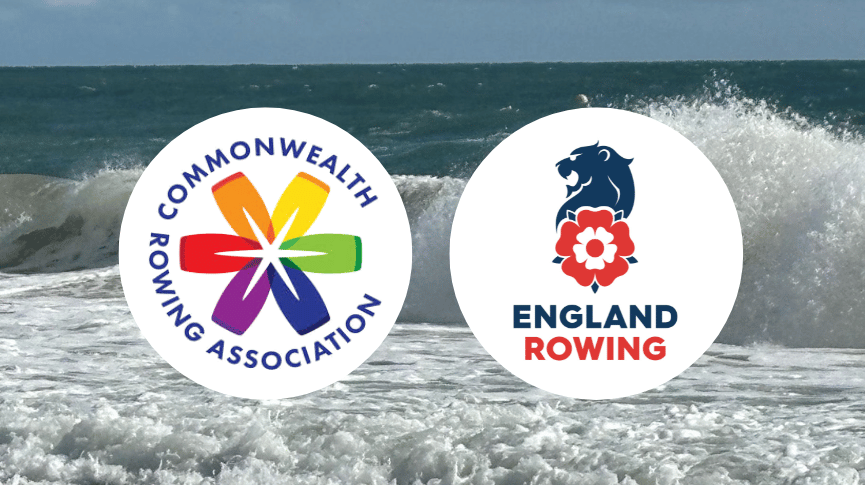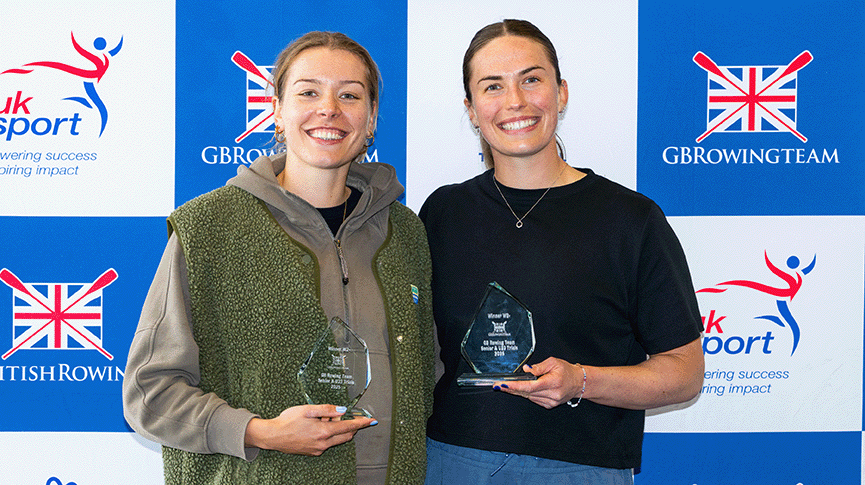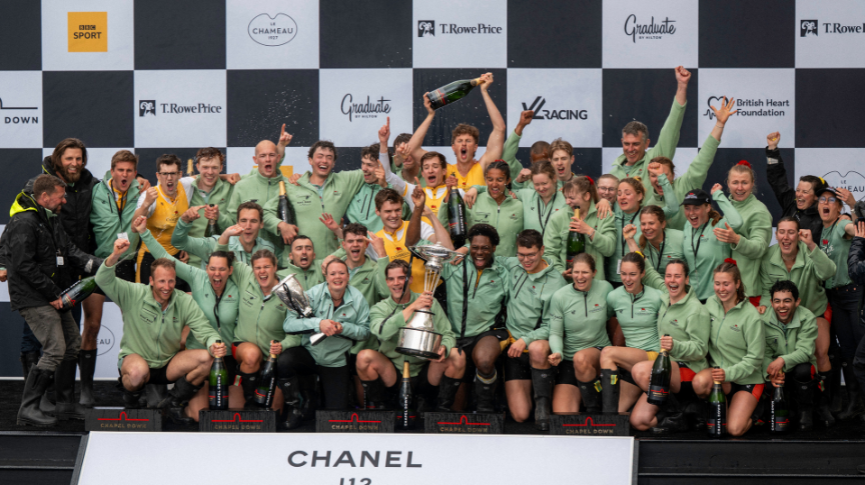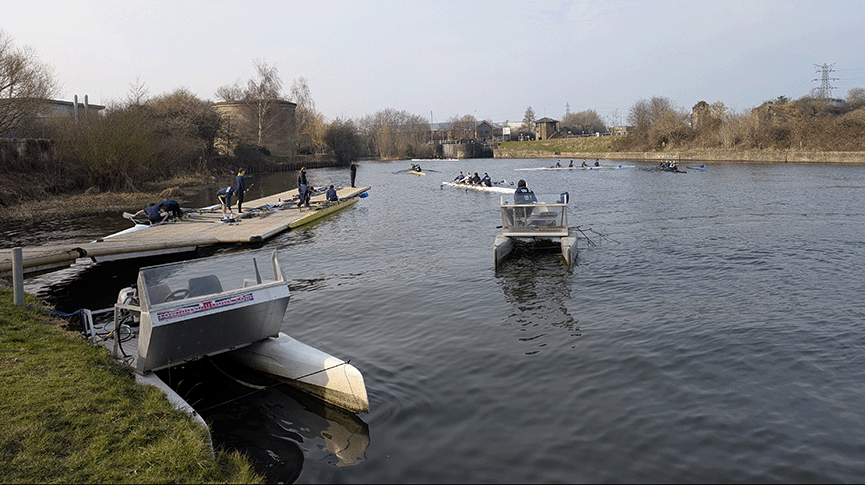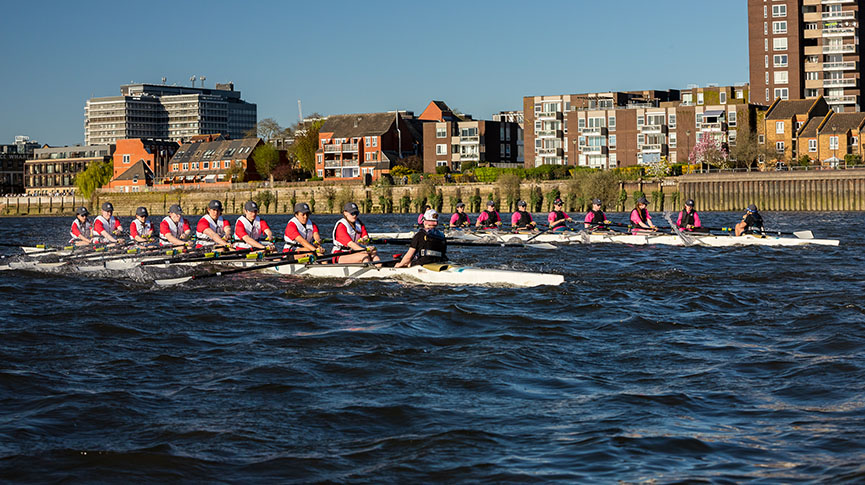At six month marker, GB remains ambitious
With six months to go to the Rio Games, Great Britain remains ambitious to maintain its place as the leading rowing nation.
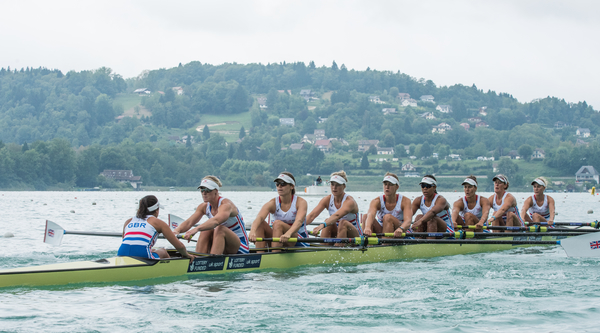
The heady days of Olympic qualifying are behind the women's eight. Who will be in these seats in six months time? Pic: Copyright Intersport Images
With six months to go to the Rio Games, Great Britain remains ambitious to maintain its place as the leading rowing nation.
This week, members of the GB Rowing Team are facing a battery of challenges set by the coaches and performance staff as the process to select the Rio 2016 line-ups continues.
“We all want to be on that start line under the statue of Christ the Redeemer in Rio,” said Alex Gregory London 2012 Champion in the men’s four.
“It gets more and more intense and more and more exciting as it gets to six months out, then suddenly it’s three months, then one month and soon it’ll be just weeks and days we’re talking about,” said Katherine Grainger, four times an Olympic medallist including gold in London.
“Every day becomes a battle for those Olympic places and there are not enough to go round.”
“The Olympics, for a sport like rowing, is the absolute pinnacle. Every athlete of any calibre wants to be there,” said Sir David Tanner, British Rowing’s Performance Director. “We are ambitious as a team and everyone is working hard.”
Pete Reed, already a double Olympic Champion, has talked of the internal pressure but also the way that the team is bonding together.
“What I have been most pleased with so far this winter is that the team is just so close,” he said.
“We have bonded as a heavyweight men’s team, and actually as a whole team, like never before in my experience – and I’ve been through a lot of teams now.
“That makes a big difference. I think the success of previous years has got a lot to do with it. We’re doing well as a squad and that encourages us to push on and train hard.”
Richard Chambers, winner of lightweight men’s four silver in London said: “The level of racing within the squad, because we are a successful nation, is immense. It’s almost as tough as racing internationally”.
His 2015 lightweight men’s double scull partner Will Fletcher said: “This week’s testing is some of the toughest that any of the team will ever face. It is brutal.”
For Alan Campbell, winner of 2012 single scull bronze and one of four rowers from the town of Coleraine, who are battling for Olympic seats, the Rio Games could also feel like a “home Games.”
“My wife’s father is a Carioca, having been raised on Ipanema in Rio,” Campbell explained.
“He is now living in England but my wife still has family in Brazil and it would be very special for me to compete there feeling like a second home Olympics.”
Campbell has rowed on the natural lake – located just minutes from Ipanema Beach and overlooked by the Christ the Redeemer statue – during his visits to Brazil.
“The Lagoa is a very special venue, probably the most iconic I have visited and had the pleasure to train on,” he added.
“Rio itself is probably my favourite city in the world after London and the Brazilians that I met were amazing and very kind to me.”
“I am confident the Rio Olympics will be a first-class experience, not just for the athletes but also supporters coming to be part of the 2016 Games. I can’t wait to get going.”
Rowers, through their team doctor and TeamGB guidance, are also keeping an eye on the Zika virus situation and have compassion for those affected.
Grainger recently told the BBC, who will broadcast the Games and the preceding rowing European Championships, and two world cups in Lucerne and Poznan: “”I think it is important to keep informed but not to raise the fear factor,” she said.
Jürgen Gröbler, Chief Coach for Open Men, has also spoken about this being the most difficult time of the four year cycle.
“If I look at the medals and gold medals won by the open men’s squad in the last few years in the Olympic and non-Olympic events at World level, it is so difficult to separate the rowers. There are always more people than seats and to look a medal-winning athlete in the eye and tell them that they haven’t made it is the hardest thing. It never gets easier.
Young people put their lives on hold especially in a sport like rowing where there are generally no riches to be won, it is all about the pride of being an Olympic medallist.”
Great Britain closed out the 2012 Olympic regatta with four golds, two silvers and three bronzes – a best ever. Rowing is the nation’s most continuously successful Olympic sport with a gold at every Games since 1984.
In London, 28 rowers in nine boat classes won medals and all 47 rowers made the Olympic final in front of record crowds at Eton-Dorney.
After the 2012 success, the sport experienced a surge of interest and British Rowing is already planning for a similar post-Rio glow.
For those oar-inspired by events in Rio 2016 there’ll be an opportunity to try rowing at local clubs across the country during the Games. But if you want to give it a go before then this website has a dedicated ‘Go rowing’ area that provides newcomers, as well as those dusting off old kit, the information they need to get started – Go Rowing Section.
British Rowers will be getting help over the next six months to help make the boat go faster from Science in Sport, SAS Analytics and the Berkshire Independent Hospital alongside its major funder, the National Lottery.
For media enquiries about this article contact the GB Rowing Team press office via: The GB Rowing Team Press Office


